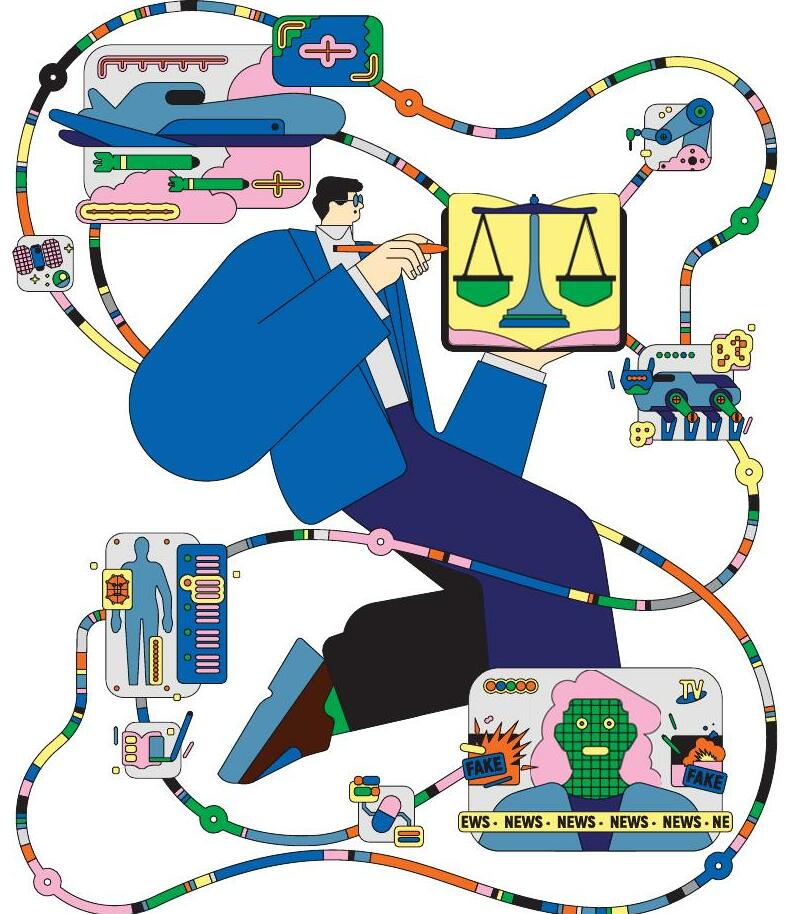Essayer OR - Gratuit
Al's Battle Shifts to the Corridors of Power
Fortune Asia
|February/March 2024
Tech companies are sparring with regulators over how they can use and develop artificial intelligence.

BY MIDNIGHT, all the cookies had been eaten. The vending machine was out of coffee. The sandwiches ordered in for dinner were long gone. Still, about 700 lawmakers remained holed up inside the European Union's soaring executive chamber in Brussels. Finally, as the sun rose on an icy Dec. 8, 2023, they staggered home to nap and shower before returning for a further 17 hours, until-out of exhaustion or expediency-they agreed on a package of laws about one of the thorniest issues on which they had ever voted: artificial intelligence.
The marathon negotiations over the EU's AI Act, as it's now known, were among the most intensive in the bloc's memory, and produced the world's first rule book for a sprawling new technology with seismic implications. The EU's 27 member nations were hardly alone in trying to pull off this legislative feat. President Joe Biden last October issued an executive order, setting out guidelines to protect Americans against discrimination and massive job losses caused by AI-a placeholder while Congress and U.S. agencies like the Department of Commerce attempt to turn the order into hard rules. Meanwhile Japan, the U.K., South Korea, and other major economies have all issued similar proposals that vary from cracking down on misinformation and deepfakes to protecting people's privacy and revealing the data used for AI machine learning. And at an AI safety summit in the U.K. last November, convened by Prime Minister Rishi Sunak, 28 countries agreed to fight "serious, even catastrophic, harm" from the technology.
The deluge of rules and the potential for more have opened a new battlefront for companies developing and using artificial intelligence. How the fine print is interpreted and enforced will have a far-reaching impact on the tech industry's future by dictating the kinds of products businesses can create and how they can harness customer data.
Cette histoire est tirée de l'édition February/March 2024 de Fortune Asia.
Abonnez-vous à Magzter GOLD pour accéder à des milliers d'histoires premium sélectionnées et à plus de 9 000 magazines et journaux.
Déjà abonné ? Se connecter
Translate
Change font size

